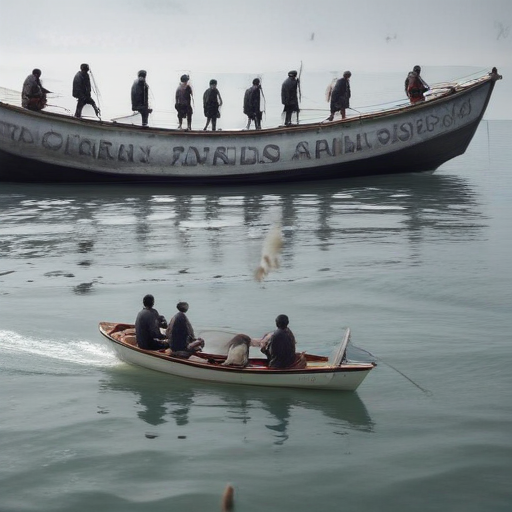Greta Thunberg rejects antisemitism accusations as she embarks on a second flotilla to Gaza, leading a larger mission that organizers say will help deliver humanitarian aid and press governments to challenge the blockade.
Thunberg, now 22, is part of a broad group of activists preparing to set sail from Spain on Sunday on what organizers describe as the largest flotilla to Gaza to date. The mission follows a previous attempt in June when Thunberg and others were detained by Israeli forces and deported after approaching aboard a British-flagged vessel, the Madleen. Israel later accused the group of antisemitism, a charge Thunberg dismissed in an interview with Sky News, insisting it is not antisemitic to oppose bombing, occupation, or for everyone to live in freedom and dignity.
The flotilla includes dozens of boats carrying aid and is organized with the aim of creating a humanitarian corridor into Gaza despite Israel’s naval blockade, which has been in place since Hamas took control of the coastal enclave in 2007. Israel has repeatedly defended its blockade as necessary for security, while critics say it hampers civilian aid and violates international law. In 2010, a deadly raid against another Gaza-bound vessel resulted in the deaths of at least nine Turkish activists, an episode that still colors the international debate over such missions.
Israel’s military said it enforces the security blockade and is prepared for a wide range of scenarios, adding that it acts in accordance with directives from political leadership. Thunberg countered that the blockade amounts to a violation of international law and said the flotilla seeks to exercise a right to sail on international waters to deliver humanitarian assistance that she believes Israel should not block.
The protests come amid a broader and deeply devastating conflict in the region. The war began after Hamas attacks on southern Israel on October 7, 2023, which left more than 1,200 Israelis dead and hundreds of hostages taken. In the Gaza Strip, the fighting and Israeli operations have caused widespread destruction and a humanitarian crisis, with the Gaza health ministry reporting a death toll approaching 63,000 Palestinians. Humanitarian observers have warned of famine-like conditions in parts of Gaza, though Israel denies the famine claim. Israel has also tightened its blockade at times by restricting land crossings, citing security concerns and alleged misdirection of aid by militant groups.
Thunberg was asked what message she would send to Hamas, which still holds several hostages. She said she does not support killing civilians, but emphasized the urgency of the toll on Palestinian civilians: “We translate that into reality and we’re seeing how many hundreds of thousands of people are dying in Gaza now, how many hundreds of thousands of people have been deprived of their dignity and justice and freedom by Israel.”
The Israeli military noted that more than two million tons of aid had been delivered to Gaza since the start of the war, with thousands of aid trucks crossing land routes and ongoing efforts to expand aid flows in coordination with international organizations and the United Nations. The IDF also highlighted that the aid regime has continued to function, while acknowledging the ongoing operational security concerns.
The flotilla’s backers describe the mission as a humanitarian gesture of solidarity with the people of Gaza and a symbolic push for an open humanitarian corridor. They hope the presence of activists from dozens of countries will draw global attention to the crisis and spur diplomatic pressure on governments to facilitate aid deliveries and a durable ceasefire.
Context and outlook:
– The flotilla movement, including a broad coalition of activists from around the world, has long faced strong opposition from Israel, which argues that such ventures risk complicating military operations and could put civilians at risk.
– International observers stress that aid access remains a critical issue for Gaza’s civilian population, while also noting the complexity of achieving humanitarian relief amid ongoing hostilities.
– The coming days will test how foreign governments respond to the flotilla and whether this high-profile action translates into measurable humanitarian access or just heightened diplomatic signaling.
Summary:
Greta Thunberg’s second Gaza flotilla embodies a sustained humanitarian appeal amid a protracted conflict, blending symbolic action with calls for concrete aid access. While the campaign emphasizes human rights and international law, it also faces a fraught political environment where security concerns, legal debates, and questions about the best ways to deliver relief intersect with deeply entrenched regional tensions. The outcome may influence global attention on Gaza and shape future debates over humanitarian corridors and naval blockades.
Optional note for editors: Consider adding a brief explainer box on the legal status of naval blockades under international law and past examples of similar flotillas to help readers understand the contested dynamics behind this event.
